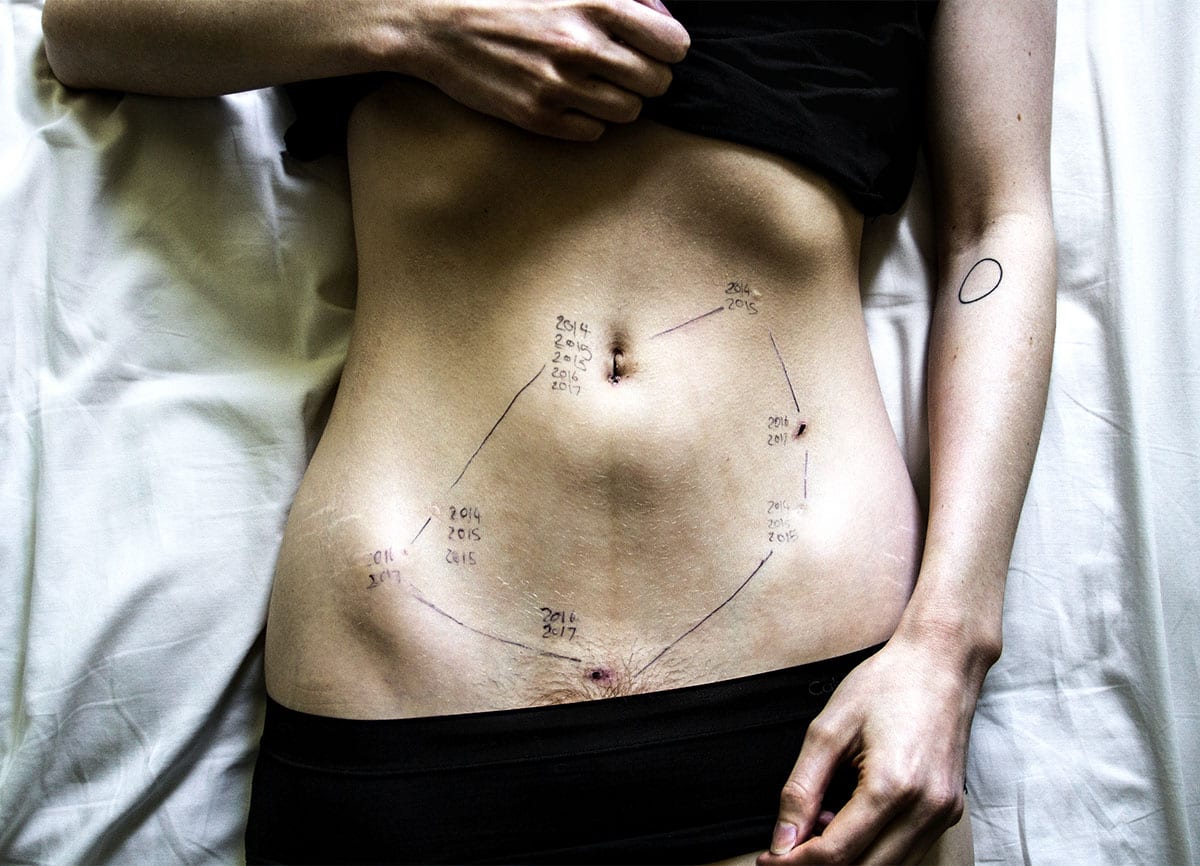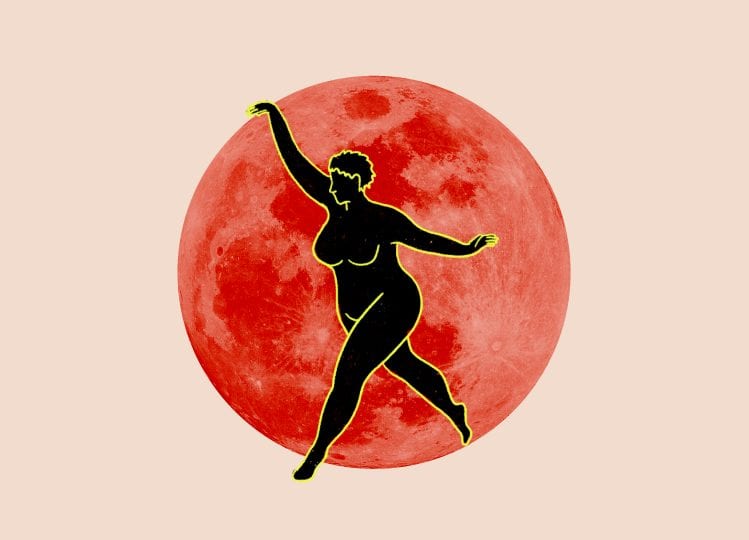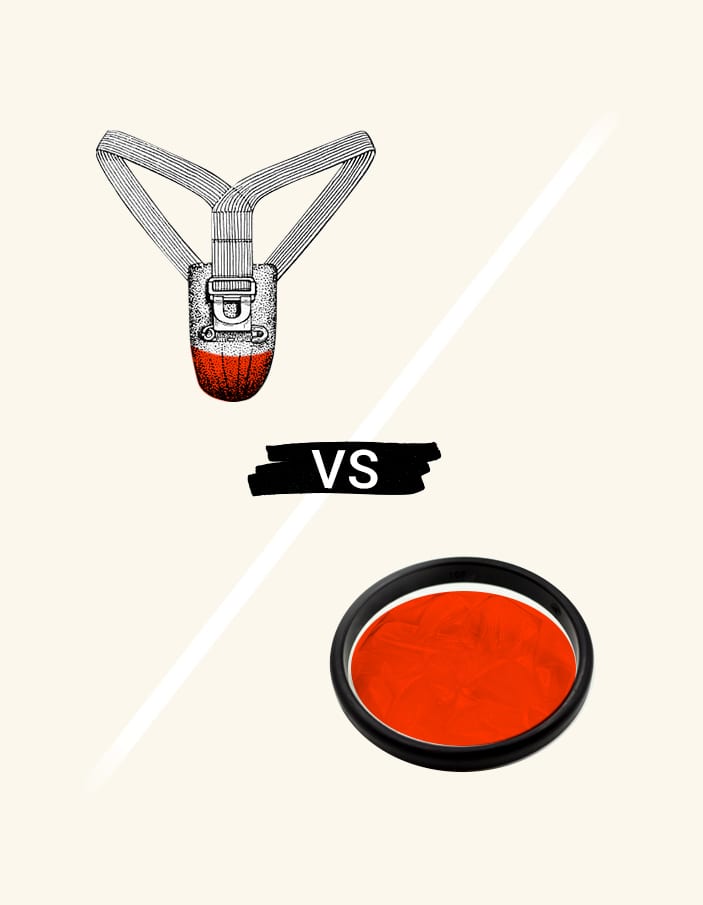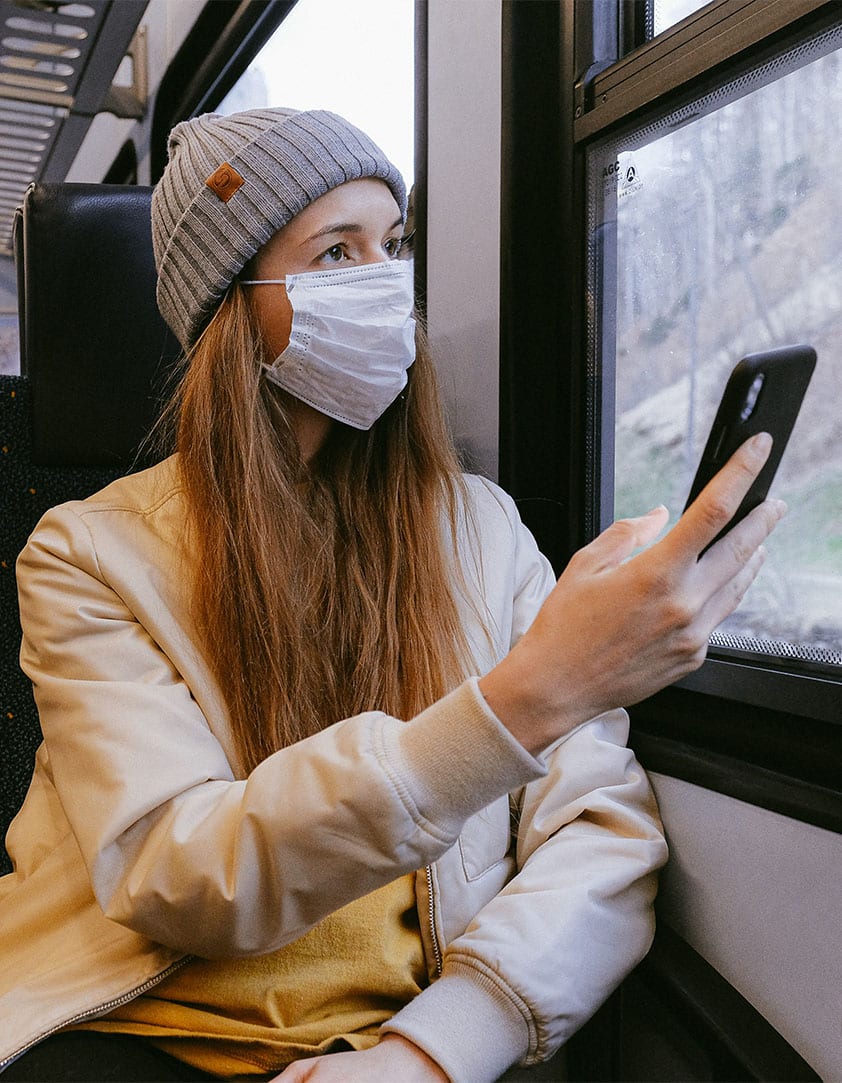All about period poops: Why you poop so much on your period
Yep, we get them, too – Here’s what you need to know
TL/DR: If you notice weird changes in your bowel habits before or during your period, you’re not alone. Diarrhea, constipation, frequent pooping, and painful abdominal cramping are common both before and during menstruation – and hormone levels have a lot to do with it. Prostaglandins, for one, stimulate contractions in the uterus and bowels; meanwhile, shifting progesterone levels can have a constipating effect around the time of ovulation.
We’ve all been there: It’s day two of your period. You’re going about your Tuesday as usual when, all of a sudden, horrible cramps hit – and not the uterine kind.
You Irish exit your Zoom call faster than that time you ran into your ex at Walgreens while buying Plan B and jog – no, sprint – to the bathroom. You make it just in time to avoid life-altering humiliation and, relieved, wonder to yourself, Is this really the third time I’m pooping today? Is this normal?
It is! Those weirdly urgent, difficult or frequent bowel movements during your period are likely the result of hormonal changes that take place before and during the menstrual phase of your monthly cycle.1 So if, aside from your typical menstrual symptoms, you also have regular run-ins with diarrhea, constipation, or particularly foul-smelling stools during your period, you’re not alone!
We’re here to enlighten you re: #2 and help you make sense of all the super-fun bowel changes and other period symptoms brought on by PMS and menstruation. Read on for a science-y explanation – and some of our not-so-science-y hacks – to make period poops a little less stressful during that time of the month.
Period poop… Before your period?
Almost every person who menstruates is familiar with PMS (Premenstrual Syndrome), a collection of bodily changes and sensations that crop up several days or even 1-2 weeks before your period.2 Pelvic cramps, headaches, bloat, fatigue, breast tenderness, mood swings, and food cravings are all well-known PMS symptoms.3

Yet many individuals don’t realize that PMS can also bring about digestive issues, gastrointestinal discomfort and bowel issues like loose stools, constipation, abdominal pain or cramping, and even nausea and vomiting.1
Turns out, about one‐third of otherwise healthy, menstruating individuals experience gastrointestinal symptoms before or during their periods. Additionally, almost 50% of individuals with a diagnosed functional bowel disorder (like Irritable Bowel Syndrome or Inflammatory Bowel Disease IBD) experience an increase in symptoms during this time.4
Scientists haven’t totally figured out why various GI symptoms tend to ramp up before and during menstruation – the physiological basis is technically unknown. One study, however, found a notable relationship between bowel habits, menstruation, and the concentration of natural, hormone-like compounds called prostaglandins.5

Your body releases prostaglandins right before your period begins. These compounds stimulate the smooth muscles of the uterus, causing the contractions (a.k.a. cramps) that help your body shed the uterine lining (a.k.a. period blood).
Prostaglandins also stimulate other smooth muscles in the body – namely, your bowels.1 More stimulation leads to more poop and, for some individuals, other annoying effects like headaches, nausea, and vomiting.6
Pooping more than usual? All about period diarrhea
Frequent, urgent pooping or diarrhea during your period is most likely the result of those increased prostaglandins mentioned above. Not only do prostaglandins lead to smooth tissue cramping,but they can also impact your intestines’ ability to absorb nutrients and mess with electrolyte secretions1 – a perfect storm for diarrhea.
If you get the runs with nearly every period – and especially if you’ve been diagnosed with dysmenorrhea – it’s possible that your body goes a little overboard with high levels of prostaglandin production.7 Medically speaking, this is no big deal; it just means you’ll have to cope with a little more cramping and bloating each month.

Diarrhea during period: what can you do about it?
Treating diarrhea during your period is just like treating any other bout of diarrhea. First, it’s important to drink plenty of water to prevent dehydration. Take frequent sips from your water bottle or grab a sports drink with electrolytes if you need an extra boost.
Skip the coffee or caffeinated beverages – caffeine is a stimulant and you certainly don’t need any extra stimulation in your bowels. It may also be beneficial to avoid spicy, sugary, or processed foods and alcohol (pretty much anything inflammatory to your digestive tract) until your digestive system gets back to normal.8
Most cases of period diarrhea will go away on their own. But if you really can’t be glued to your toilet all day and need a quick fix, you may prefer to pick up a good ol’ box of over the counter anti-diarrheal medication. Stop by your local Walgreens or CVS Pharmacy and look for products containing loperamide or bismuth subsalicylate (and stock up on Flex® while you’re at it).
Still struggling? If you’ve had severe diarrhea for more than a few days, or if it doesn’t stop for several days after your period ends, call your primary care physician. It’s always best to make sure it’s not due to something more serious.

Feeling a little backed up? The menstrual cycle, progesterone & period constipation
Another “P” word for you: Progesterone. It’s one of the major sex hormones and it spikes during the second half of your cycle, just after ovulation. This is when the corpus luteum is formed out of the remnants of the ovarian follicle (luteal phase). From the time of ovulation until menstruation, levels of progesterone gradually decrease (that is unless you get pregnant).9
What does progesterone have to do with poop? Research shows that the hormone progesterone has a naturally constipating effect10, especially when levels are high. This is why many women experience constipation around ovulation. Of course, it can happen during your period, as well.
If you experience period constipation around or during menstruation, it might have more to do with your food choices than progesterone levels. Food cravings commonly accompany your period, possibly due to hormonal shifts and an increase in amino acid bonds called endogenous opioid peptides (EOPs).11 We fully support eating whatever you’re craving – but keep in mind, that double bacon cheeseburger might not register so well with your bowels.
Red meat, dairy, and fried foods – some of our favorites – are known to bring on constipation.12 If you were already somewhat predisposed to “backing up,” those indulgences could be making it worse.

To relieve constipation, it’s best to try lifestyle changes like adjusting your diet or upping exercise before resorting to laxatives. While laxative effects provide short-term relief, they can make constipation worse in the long run if you take them too frequently. This is because your body could start to rely on them, making it almost impossible to go without.13 Instead, reach for a bag of dried plums (prunes), eat food that is high in fibers fresh fruits, vegetables, and whole grains, and make sure you’re drinking LOTS of water.
Some studies have shown that probiotics are helpful in preventing constipation.14 Find them in foods like yogurt, sauerkraut, kombucha, and kimchi, or purchase them in capsule or gummy form. And pour yourself that extra cup of coffee or tea – caffeine is a stimulant and may help your body get things moving and ease your bowel symptoms.
Recap: Understanding periods, your bowel, & you
Bowel movement changes during your period are a lot more common than you might have thought. Thankfully, period poops are only temporary, and there are a number of ways to find relief. You’re the expert on your body and symptoms. Try out some of the tips above, but seek help from a healthcare provider if diarrhea, constipation, or other GI symptoms become unbearably painful or don’t go away.
With a little patience and perseverance, we bet you can find at least one or two tricks to help relieve your period poop woes. And remember: If cramps are bothering you almost as much as the time you’re spending in the bathroom, Flex Disc™ might help to alleviate them.
Cheers to good health and healthy poop!
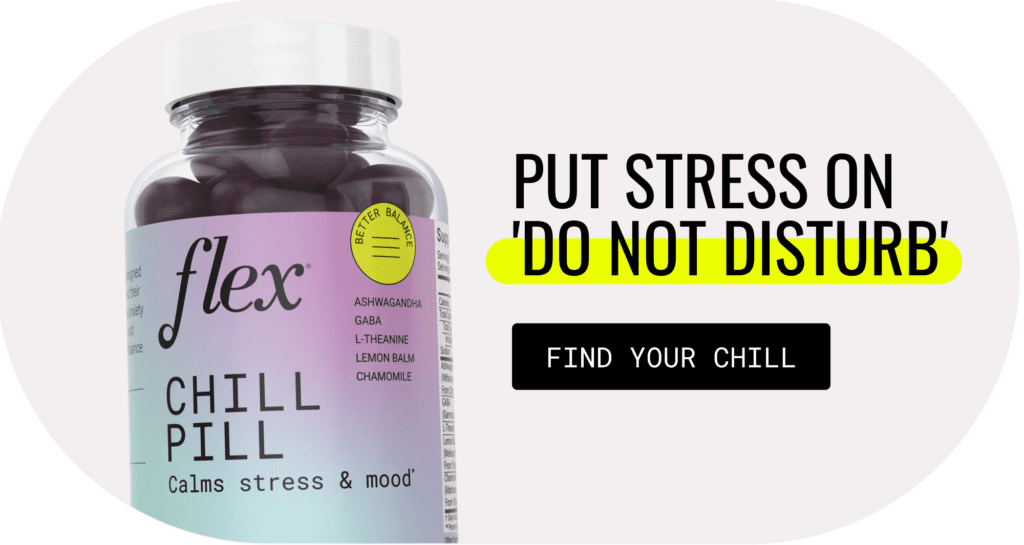
- Bernstein, M. T. (2014, January 1). Gastrointestinal symptoms before and during mensesAnother term for menstrual flow (commonly known as your period). in healthy women. PubMed Central (PMC). Retrieved from ncbi.nlm.nih.gov/pmc/articles/PMC3901893/[↩][↩][↩][↩]
- Premenstrual syndrome (PMS). (2018, March 16). US Department of Health & Human Services. Retrieved from womenshealth.gov/menstrual-cycle/premenstrual-syndrome[↩]
- Premenstrual syndrome (PMS) – Symptoms and causes. (2020, February 7). Mayo Clinic. Retrieved from mayoclinic.org/diseases-conditions/premenstrual-syndrome/symptoms-causes/syc-20376780[↩]
- Moore, J., Barlow, D., Jewell, D. and Kennedy, S. (1998), Do gastrointestinal symptoms vary with the menstrual cycle? BJOG: An International Journal of Obstetrics & Gynaecology, 105: 1322-1325. Retrieved from obgyn.onlinelibrary.wiley.com/doi/full/10.1111/j.1471-0528.1998.tb10014.x[↩]
- Arthur, C. (1992, August 1). Prostaglandin metabolism in relation to the bowel habits of women – PubMed. PubMed. Retrieved from pubmed.ncbi.nlm.nih.gov/1409762/[↩]
- Using Foods Against Menstrual Pain. (n.d.). Physicians Committee for Responsible Medicine. Retrieved from pcrm.org/good-nutrition/nutrition-information/using-foods-against-menstrual-pain[↩]
- Dysmenorrhea: Painful Periods. (n.d.). The American College of Obstetricians and Gynecologists. Retrieved from acogACOG stands for the American College of Obstetricians and Gynecologists (a professional membership organization for obstetrician–gynecologists)..org/patient-resources/faqs/gynecologic-problems/dysmenorrhea-painful-periods[↩]
- Diarrhea – Diagnosis and Treatment. (2020, June 16). Mayo Clinic. Retrieved from mayoclinic.org/diseases-conditions/diarrhea/diagnosis-treatment/drc-20352246[↩]
- Progesterone | You and Your Hormones from the Society for Endocrinology. (2018, February). Retrieved from yourhormones.info/hormones/progesterone/[↩]
- Xiao, Z. L., Pricolo, V., & Biancani, P. (2004, August 11). Role of progesterone signaling in the regulation of G-protein levels in female chronic constipation. Retrieved from sciencedirect.com/science/article/abs/pii/S0016508504021894[↩]
- Stampler, L. (2019, June 11). Why You Have Food Cravings On Your Period. Women’s Health. Retrieved from womenshealthmag.com/health/a19947726/why-you-have-period-cravings[↩]
- 7 Foods That Can Cause Constipation. (2020, January 31). Healthline. Retrieved from healthline.com/nutrition/8-foods-that-cause-constipation[↩]
- Over-the-counter laxatives for constipation: Use with caution. (2017, June 6). Mayo Clinic. Retrieved from mayoclinic.org/diseases-conditions/constipation/in-depth/laxatives/art-20045906[↩]
- Corliss, J. (2014, August 21). Probiotics may ease constipation. Harvard Health Publishing. Retrieved from health.harvard.edu/blog/probiotics-may-ease-constipation-201408217377[↩]




